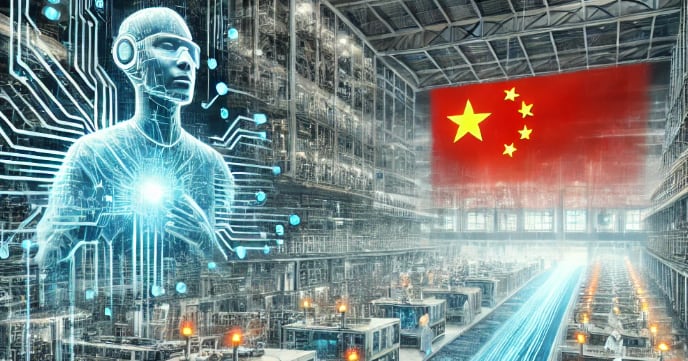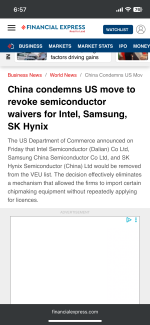
FILE PHOTO: Illustration shows U.S. flag and Intel chip
(Reuters) -The United States is making it more difficult for chipmakers Samsung and SK Hynix to produce chips in China by revoking authorizations
The U.S. Commerce Department has revoked exemptions granted in 2022 to companies including Samsung Electronics, SK Hynix, and Intel, which allowed the sale of U.S. semiconductor equipment to China without licenses. These firms must now obtain licenses for such exports, with the revocations taking effect in 120 days. Intel, however, sold its Dalian, China unit earlier this year. The department stated it will approve licenses for maintaining existing facilities in China but not for capacity expansions or technology upgrades.
South Korea's industry ministry expressed concerns, emphasizing the need for stable operations of its semiconductor firms in China to support the global supply chain, and pledged ongoing discussions with the U.S. to mitigate impacts. The change is expected to reduce sales to China for U.S. equipment manufacturers like KLA Corp, Lam Research, and Applied Materials, none of which commented.
This move aligns with ongoing U.S.-China trade tensions, including a tariff truce extending to November with 30% U.S. levies on Chinese imports and 10% Chinese duties on U.S. goods. A June White House statement indicated preparations for potential breakdowns in trade talks, though a July tariff deal remains unsigned following a summit between South Korean President Lee Jae Myung and U.S. President Donald Trump.
Experts like Chris Miller, author of "Chip War," noted that the policy could hinder Korean chipmakers' production of advanced chips in China, potentially benefiting domestic Chinese suppliers and U.S. competitor Micron in the memory sector. However, without further actions against Chinese firms like YMTC and CXMT, it risks boosting Chinese market share at Korea's expense.
Additionally, the revocation ends Validated End User (VEU) status for foreign chipmakers like Samsung and SK Hynix, complicating U.S. exports. This occurs amid a backlog of thousands of U.S. license applications for China exports, including billions in semiconductor equipment.






